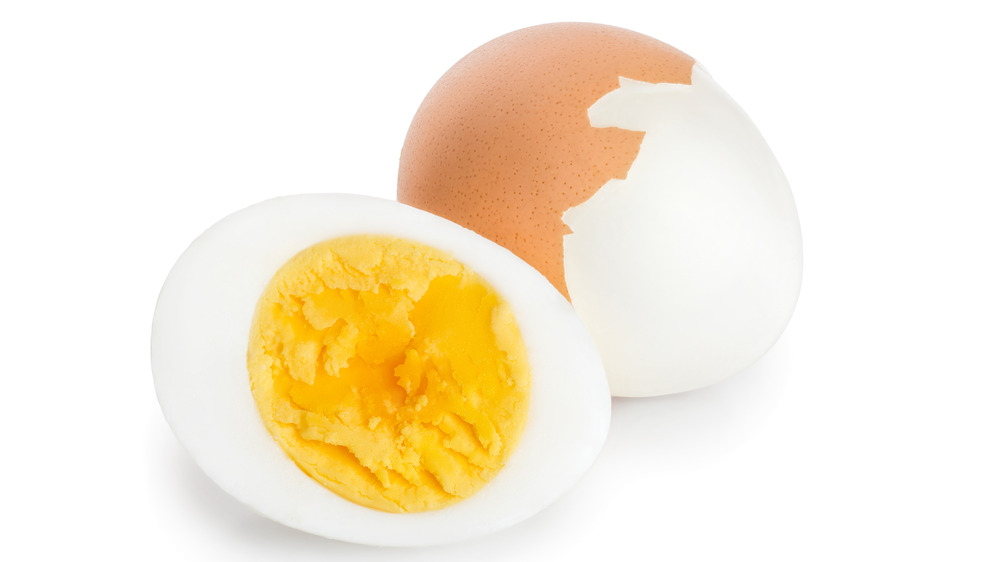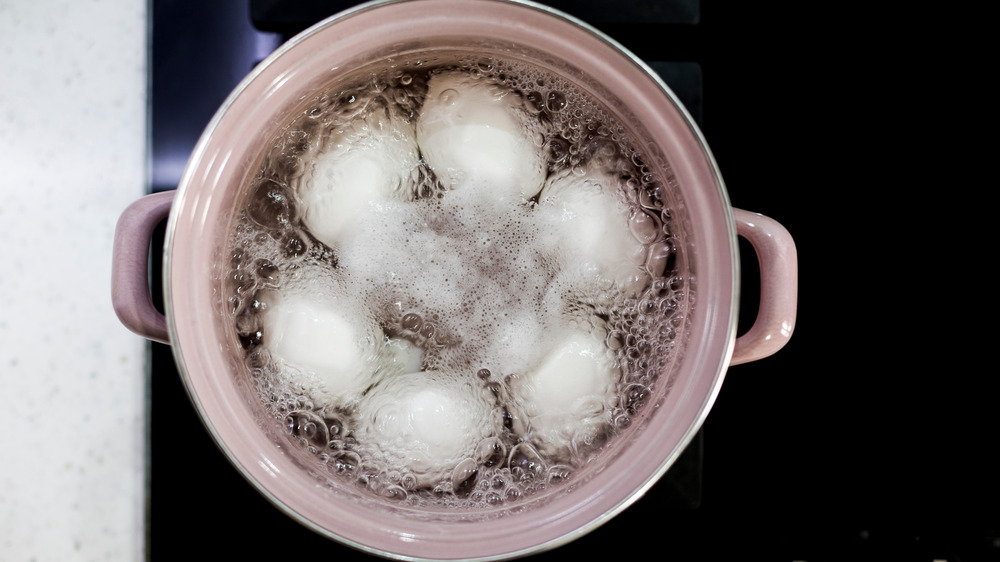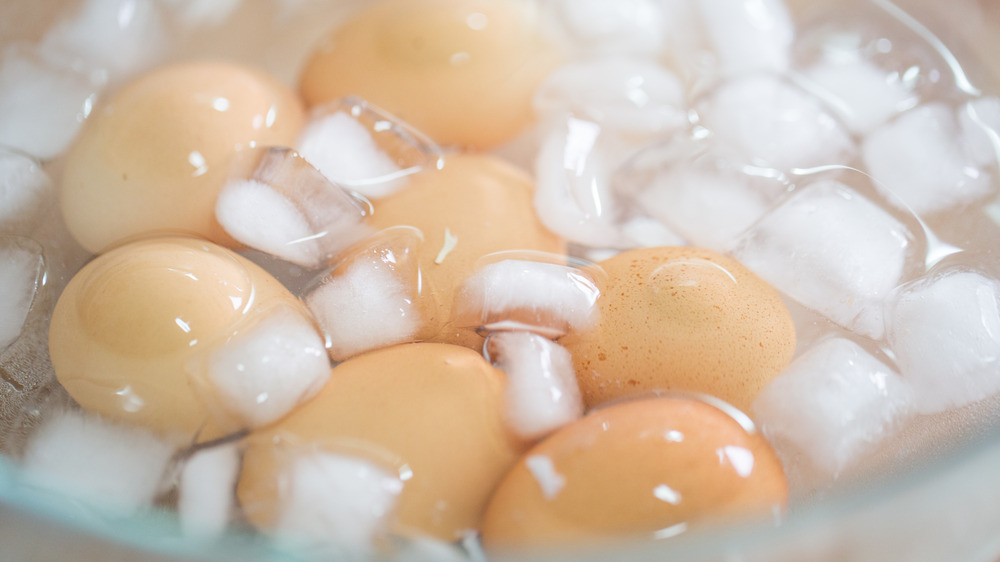This Common Trick Doesn't Actually Make Hard Boiled Eggs Easier To Peel
Whole eggs are the "healthiest food on the planet" according to Healthline, as they are jam-packed with vitamins and all nine essential amino acids our bodies need for optimal functioning but do not produce naturally, making them a complete protein source. Of all the ways you could prepare an egg, one of the healthiest methods is to hard boil, as no butter or oil is needed. As healthy as hard boiling may be, it can be a rather painstaking method when the shell does not peel off easily.
If you've ever "shocked" hard-boiled eggs (placing the eggs into a bowl of ice water immediately after cooking) hoping to make the peeling process easier, only to find the shell still taking an obscene amount of egg white with it, it may be because an egg's peel-a-bility depends on the temperature of the water it is placed in before cooking, not after (via Lifehacker). That's not to say that ice baths don't play a role in the egg-boiling process. Serious Eats found that an ice water bath can help form a more evenly shaped egg, but when it comes to easy peeling, cold water is precisely what you want to avoid.
Always start your eggs in boiling water
Dunking boiled eggs into ice water doesn't seem to affect on how easily the shell is removed, but the temperature of the water at the beginning of the cooking process does and, according to Lifehacker, it should always be brought to boiling first. Starting eggs in cold water and bringing them to a boil "bonds the eggs to the membrane" around the egg, sealing the shell to the egg. Lifehacker notes dropping raw eggs into boiling water prevents the membrane from adhering as strongly, allowing the shell to peel off easier.
Aside from the temperature of the water, there are other factors that could impact the ease at which a boiled egg's shell is removed. According to Simply Recipes, eggs are usually easier to peel when they are one to two weeks old. However, Serious Eats notes eggs sold at US grocery stores can be packaged up to 30 days after being laid and given a sell-by date of as many as 30 days after that, so store-bought eggs chosen closer to their expiration date make fine candidates for easy peeling. Steaming eggs could also make them easier to peel, as the steam seeps through the hard exterior to create space between an egg and its shell.
Don't dump the ice bath out just yet
While shocking eggs doesn't influence how easily their shells are removed, don't throw away that ice bath just yet. According to The Spruce Eats, ice baths are typically used to drop the temperature of various foods quickly, as to avoid the "danger zone" temperature range in which bacteria grows at an exponential rate. When it comes to hard boiled eggs, however, dropping one into ice water immediately after cooking can affect the shape the egg will take once it has fully cooled (via Serious Eats).
An egg's yolk and whites are not immediately set after being boiled. As the egg cools, the steam that forms within its shell during the cooking process begins to pool inside the egg and the malleable egg white takes shape around it, which is why hard boiled eggs are sometimes flat or indented across the top. Shocking the egg will expedite the cooling process and turn the built-up steam into water, giving the egg more space to cool and settle throughout the shell. Because of this, shocking a hard boiled egg in ice water can leave you with a more perfectly-shaped egg.


